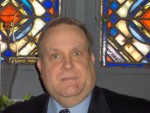 Recently in one of the blogs I had written regarding the celebrations surrounding the Easter season, I mentioned that Catholics were perhaps a bit uneasy about the manner in which Islamic faithful express their faith. Uneasy is perhaps an understatement. In our Western culture, religion has taken an antiseptic approach towards religious expressionism. The Catholic liturgy does indeed have different postures of prayer such as kneeling, standing and sitting. These are routine in our religious expressionism. We also have actions such as genuflections, slight bows, solemn bows, prostration during sacramental ordinations but we do not require any specific rituals or actions as conditions to our prayers. This was not always true.
Recently in one of the blogs I had written regarding the celebrations surrounding the Easter season, I mentioned that Catholics were perhaps a bit uneasy about the manner in which Islamic faithful express their faith. Uneasy is perhaps an understatement. In our Western culture, religion has taken an antiseptic approach towards religious expressionism. The Catholic liturgy does indeed have different postures of prayer such as kneeling, standing and sitting. These are routine in our religious expressionism. We also have actions such as genuflections, slight bows, solemn bows, prostration during sacramental ordinations but we do not require any specific rituals or actions as conditions to our prayers. This was not always true.
The Apostolic Church observed the ritual movements and dietary requirements until the Council of Jerusalem. Traditionally Church architecture has directed that churches be built with the altar facing east. Of course east is the direction of the rising sun, or new life or the Resurrected Jesus. There has been a lot written recently about the direction of the priest during the celebration of the Eucharist. Prior to the liturgical reforms of the Second Vatican Council, priests faced away from the people when celebrating the sacrament. It was call ad orientem, or to the east. Today most of our liturgical celebrations of the Eucharist are celebrated with the priest ad populum, or towards the people. This dramatic change of posture in the priestly orations is a topic that Church experts on liturgy and theology have debated since the 1960's.
The Holy Father, Benedict XVI, as Cardinal Ratzinger wrote extensively on this topic. Although he has proclaimed no definitive direction for the direction of prayer since his election, his writings clearly indicate that in the historical context of the Church's liturgy ad orientem is an ancient and preferred practice. Whatever the manner of prayer we adopt in our liturgical expression is quite honestly irrelevant to our desire to praise our Creator.
In many religious sects throughout the world, the believers have embraced manners and directions of prayer that embrace the mystery of communications with the Divine Being. In the case of our Islamic cousins, the call to prayer is very publically heard and distinguished by the ritual of facing towards Mecca for prayer. Such orientation and direction is part of our Catholic heritage as well. To face the east is an admirable practice that recalls our theological as well as cosmological orientation towards the land that signifies the Rising Sun. In our case, this Rising Sun is Christ Jesus and not a preference to Allah, or the Egyptian sun god, Ra. In addition to our heritage as a theological people, we Catholics are also well rooted and established in the appreciation of the Divine Being through His manifestations in the world around us. We as Catholics do not apply any rituals of purification to our public prayer, as our Jewish brothers and sisters, and our Islamic cousins, however, as fellow believers we need to appreciate and respect the practices of other religions towards ritual purifications. The Holy Father, Benedict XVI removed his shoes in respect for "sacred ground" when he visited a mosque in Rome last year. In the same manner, we should expect our brothers and sisters in faith to observe similar behavior when observing other religions. Collectively we are God's People, all directing our prayers towards One God.
As Catholics, we need to make a mental observation and recall liturgical actions are old and rich manifestations of man's attempt to worship God. We have our own, our priests kiss the altar in reverence, we genuflect out of respect for the Blessed Sacrament, and we extend the Sign of Peace with a handshake or an embrace. Our ritual expressions, as well as the ritual expressions of our faithful brothers and sisters of other creeds are deeply felt signs and symbols of faith.
Together as the collective human family on pilgrimage towards a relationship with the Divine Being, we call God, Jesus, Holy Spirit, others call Allah or Yahweh or even Buddha, let us appreciate and look upon all of our faiths as living expressions of divine participation and not reasons to disdain or ridicule other religious expressions of faith. The search for God and a relationship with Him has many methods; our Catholic expressions of faith might seem foreign to someone that practices Islam, however together we are both seeking God, by whatever name, face and manner we freely choose to do so.
Copyright 2010 Hugh McNichol
About the Author

Guest
We welcome guest contributors who graciously volunteer their writing for our readers. Please support our guest writers by visiting their sites, purchasing their work, and leaving comments to thank them for sharing their gifts here on CatholicMom.com. To inquire about serving as a guest contributor, contact editor@CatholicMom.com.


.png?width=1806&height=731&name=CatholicMom_hcfm_logo1_pos_871c_2728c%20(002).png)
Comments